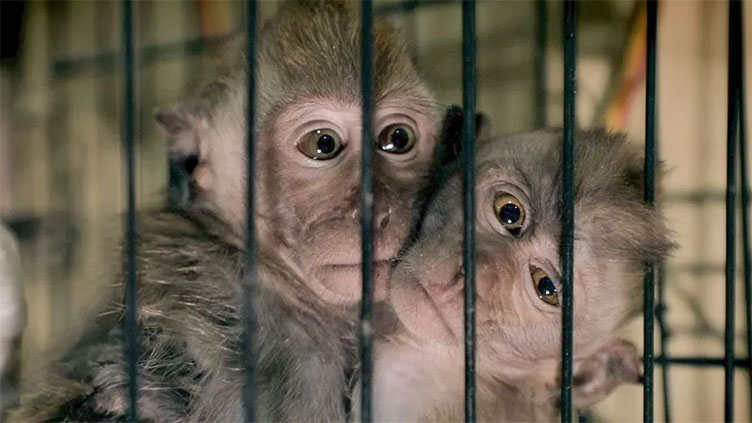Tech giants face fines for animal cruelty videos

Technology
Animal cruelty videos will be deemed as a priority offence
(Web Desk) : - Social media firms must remove animal cruelty content from their platforms or face fines of up to £18m.
The latest change to the Online Safety Bill comes following a BBC Eye investigation.
Ministers said the Monkey Haters investigation that uncovered a global monkey torture ring was a clear example of why the amendments were needed.
The bill - which aims to police the internet - is expected to become law this autumn.
Animal cruelty videos will be deemed as a "priority offence" under a new amendment to the bill - bringing it in line with revenge porn, child sexual abuse and threats to kill.
Under new proposals, if social media platforms do not proactively tackle the illegal content and have it removed, they will face fines of up to 10% of their global annual revenue.
A year-long BBC Eye investigation uncovered a sadistic global monkey torture ring stretching from Indonesia to the United States.
Undercover, a BBC reporter entered a private Telegram messaging service group where hundreds of people in the US and the UK were brainstorming, crowdfunding, and then commissioning and paying for videos of baby monkeys being tortured and killed, from people in Indonesia.
In the US a former member of the air force has been charged and more than 20 people are under investigation. Two men in Indonesia have been jailed and in the UK three women have been arrested and released under investigation.
In a statement YouTube said animal abuse had "no place" on the platform and it had removed hundreds of thousands of videos. Telegram said its moderators could not proactively patrol private groups. There are still active monkey abuse groups on social media.
The BBC Eye work highlighted the extent to which social media can be used to pay for the torture of animals.
Technology Secretary Michelle Donelan said that this kind of activity was "deeply disturbing" and that the bill would now broaden beyond its remit of protecting children to "stop the proliferation of animal abuse too".
"The BBC's diligent investigative work revealed a dark underbelly of our internet that pushes its sadistic criminal activity to everyday people," she said.
David Bowles from the RSPCA welcomed the amendment and was hopeful it would be enacted.
"It's deeply unsettling and disheartening just how widespread animal abuse videos and imagery are becoming and with young people spending so much time online, it can be incredibly challenging for parents and guardians to monitor the content they are seeing," he said.
Nicola O'Brien, lead co-ordinator of the Social Media Animal Cruelty Coalition (SMACC) - whose members include the RSPCA and Action for Primates - said the proposed amendment would "put a stronger emphasis on the platforms to take responsibility and stop providing a literal platform for animal abusers," adding that they currently don't do enough to prevent the sharing of content across their sites.
The Dogs Trust told the BBC it hoped that in the future the government would go further and explicitly tackle harmful pet advertising practices on social media and classified ad sites.
The much-delayed Online Safety Bill - a new set of laws aimed at protecting children and adults online - is set to become law next month.
It aims to make social media companies more responsible for their users' safety on their platforms.

